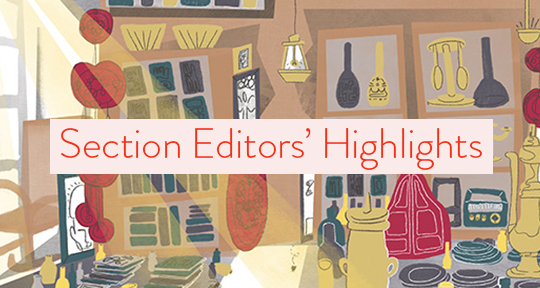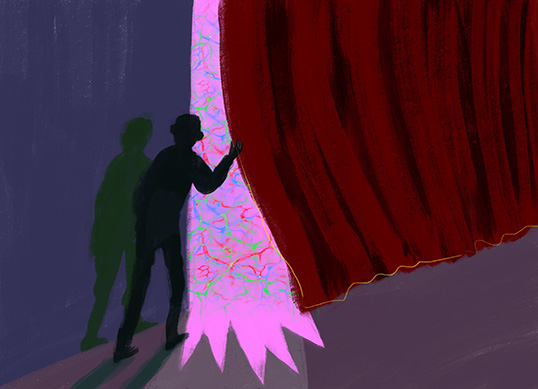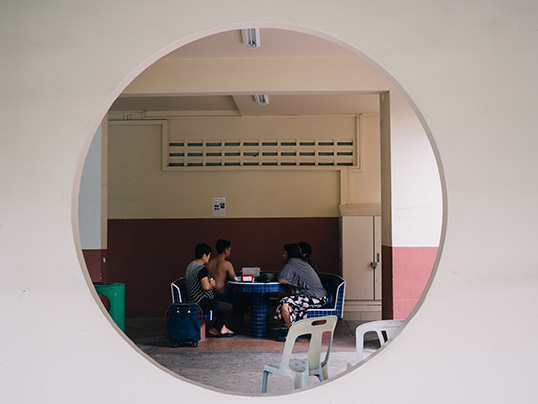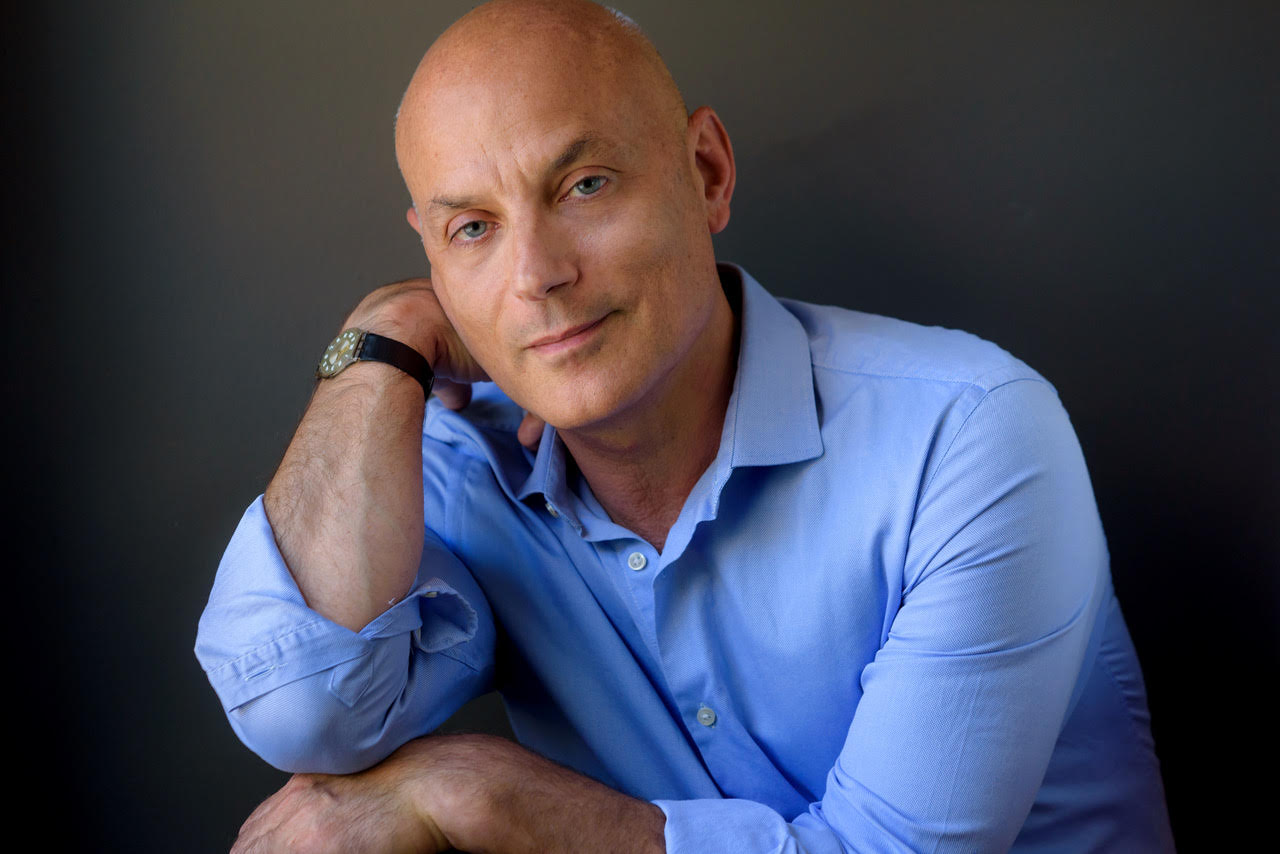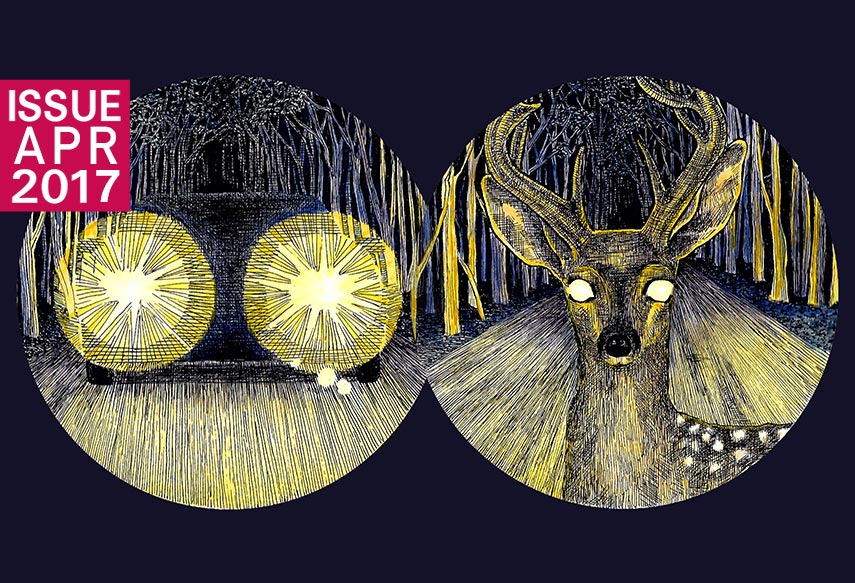Our Spring 2020 issue has arrived amidst a rising desire for unity and community. As we seek new sights from views made familiar by isolation, Asymptote is proud to have gathered some of the most vivid and singular works from literary talents from thirty countries, so that we may all benefit from the vitality of their distinct imaginings and realities. Here, our section editors share their favourites and guide you around this edition’s abundance of ideas and inventions.
From Lee Yew Leong, Fiction and Galician Poetry Feature Editor:
If you enjoyed watching Leonardo DiCaprio in The Revenant, you’ll probably love “Red Ivory” by Italian writer Matteo Meschiari from the new issue: like the film, it’s a survival tale set in the extreme cold (in the Siberian permafrost, to be specific), riveting in its depiction of the elements, narrated urgently with brilliant flashes of lyricism—including one electric moment of human contact collapsing 12,000 years. By the end, it’s also a möbius strip of a story posing big existential questions. (Don’t miss the edifying note by emerging translator Enrico Cioni, who did an amazing job rendering the story.) The omniscient narrator of Mirza Athar Baig‘s “Junkshop” transports us similarly through history—this time centering around the objects of a contemporary junkshop—infusing an everyday scene with wonder at just how much we don’t know. Many delights abound in the Galician Poetry Feature headlined by Manuel Rivas, Chus Pato, and Alba Cid (translated by Jacob Rogers, who also helped put together the Feature), but be sure to acquaint yourself with Luz Pozo Garza, one of Galicia’s literary greats, who passed away at age 97 less than a week after the release of the issue. In the selection that translator Kathleen March presented, she used cadences of the canticle and other musical forms to sing of an ecstatic yet bittersweet love for an evanescent world.
From Henry Ace Knight, Interviews Editor:
Kamila Hladíková’s conversation with Tibetan writer Tsering Woeser for the Spring issue’s interview section centers on the precariousness of Tibetan cultural memory and the poet’s resistance to its wholesale erasure. Citing Milan Kundera and Edward Said, Woeser suggests that the survival of marginalized collective identity is incumbent upon the insistence of individual eyewitness memory and testimony. “The history of a nation consists of the personal histories of its people,” she writes. “Descartes said, ‘I think, therefore I am’; but in Tibet, it should be, ‘I remember, therefore we are.’”
From Varun Nayar, Nonfiction Editor:
Following the footsteps of the great Japanese poet Matsuo Bashō, Durian Sukegawa writes about a journey he made in 2012, traversing a landscape reshaped by the earthquake, tsunami, and Fukushima Daiichi nuclear disaster the year before. Alison Watts’s vivid translation of Sukegawa’s written account of this journey acquaints us with the personal and political stakes of living in post-Fukushima Japan. Part travelogue, part political meditation, Sukegawa’s writing pairs the beauty of the Japanese landscape with the ugliness of government negligence. At the heart of this piece is a desire to bear witness to the lives rendered invisible in the eyes of the mainstream media and the country’s disaster management apparatus. In its sober reflection of the human cost of events still fresh in Japan’s collective memory, Sukegawa’s piece also conjures an eerie relation to the current pandemic we’re living through. READ MORE…

